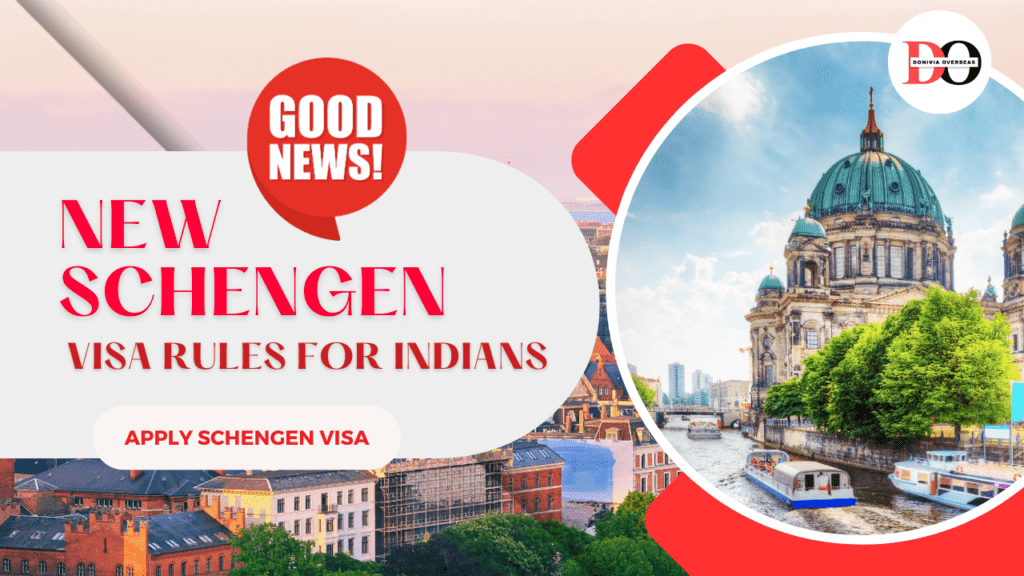
Schengen Agreement
Indian citizens can now apply for a multiple entry Schengen visa with longer validity, the European Union (EU) said in a statement today.
This new visa ‘cascade’ regime for Indian nationals residing in India who apply for Schengen (short-stay) visas in India will provide easier access to visas with multi-year validity for travellers with an established travel history, if the passport validity allows, the EU said.
The European Commission on April 18, 2024 adopted specific rules on issuing multiple entry visas to Indian nationals, which are more favourable than the standard rules of the Visa Code that applied to date.
According to the newly adopted visa “cascade” regime for India, Indian nationals can now be issued long-term, multi-entry Schengen visas valid for two years after having obtained and lawfully used two visas within the previous three years.
The two-year visa will normally be followed by a five-year visa, if the passport has sufficient validity remaining. During the validity period of these visas, holders enjoy travel rights equivalent to visa-free nationals.
This decision comes in the context of strengthened relations under the EU-India Common Agenda on Migration and Mobility, which seeks comprehensive cooperation on migration policy between the EU and India, with facilitation of people-to-people contacts being of key aspect due to the importance of India as a partner for the EU.
About Schengen Countries
The Schengen area consists of 29 European countries (of which 25 are EU states): Belgium, Bulgaria, Croatia, Czech Republic, Denmark, Germany, Estonia, Greece, Spain, France, Italy, Latvia, Lithuania, Luxembourg, Hungary, Malta, Netherlands, Austria, Poland, Portugal, Romania, Slovenia, Slovakia, Finland and Sweden, along with Iceland, Liechtenstein, Norway, and Switzerland.
The Schengen Area has a population of more than 450 million people and an area of 4,595,131 square kilometres (1,774,190 sq mi). About 1.7 million people commute to work across an internal European border each day, and in some regions these people constitute up to a third of the workforce.
The Schengen Agreement was signed on 14 June 1985 by five of the ten EC member states[8] in the town of Schengen, Luxembourg. The Schengen Area was established separately from the European Communities, when consensus could not be reached among all EC member states on the abolition of border controls.
The Agreement was supplemented in 1990 by the Schengen Convention, which proposed the abolition of internal border controls and a common visa policy.[9] The Agreements and the rules adopted under them were entirely separate from the EC structures, and led to the creation of the Schengen Area on 26 March 1995
Common Schengen Visa Policy
The Common Schengen Visa Policy is an agreement among 29 European countries to allow for simplified visa procedures and the abolition of internal borders, creating a single territory known as the Schengen Area. Established in 1995, the Schengen Agreement facilitates the free movement of people within its member states, promoting tourism, trade, and cultural exchange.
Under this policy, travelers from countries outside the Schengen Area can apply for a Schengen Visa, which grants entry to all member states for a specified period. This visa is particularly advantageous for tourists and business travelers, as it eliminates the need for multiple visas when visiting different countries within the Schengen Area.
The Schengen Visa application process typically involves submitting required documents, such as a valid passport, travel itinerary, proof of accommodation, and sufficient funds to cover expenses during the stay. Once approved, the visa allows for multiple entries and stays within the Schengen Area for up to 90 days within a 180-day period.
If you’re planning to apply for a Schengen Visa and seeking assistance from a reputable immigration company in Delhi, Donivia Overseas could be a great choice. As one of the Best Immigration Company in Delhi, Donivia Overseas offers professional services to help individuals navigate the visa application process efficiently and effectively

